Day 5, Chobe National Park morning safari drive.
We are peacefully sleeping in our Mowana Safari Lodge room when our 5 am wake-up call comes. Time to get back in the safari jeep, to see the animals!
Dressing warmly, we gather with Tonia at the main lodge, where coffee and breakfast breads and juices are temptingly laid out on tables. Even though we are all still trying to shake off lingering sleepiness, we are excited to go back to the animal park, and we are still talking about seeing the lion pride last night. Draining the last of our coffee from our cups, we go out to the safari jeep and climb back in.
We enter Chobe National Park and head towards the river. Early morning view:
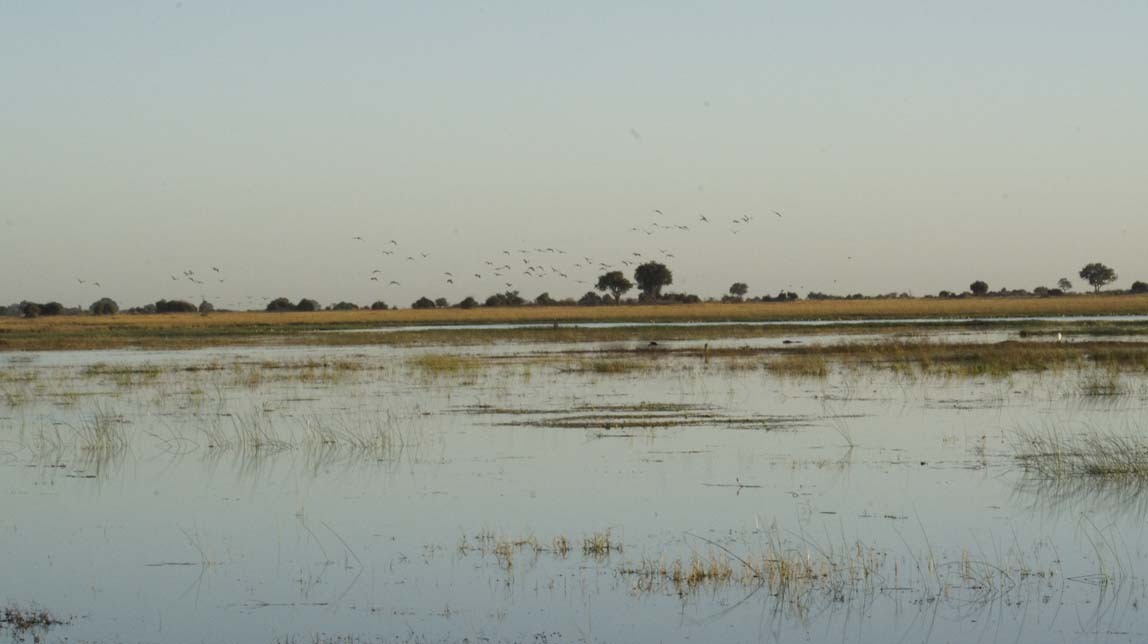
A fish eagle:
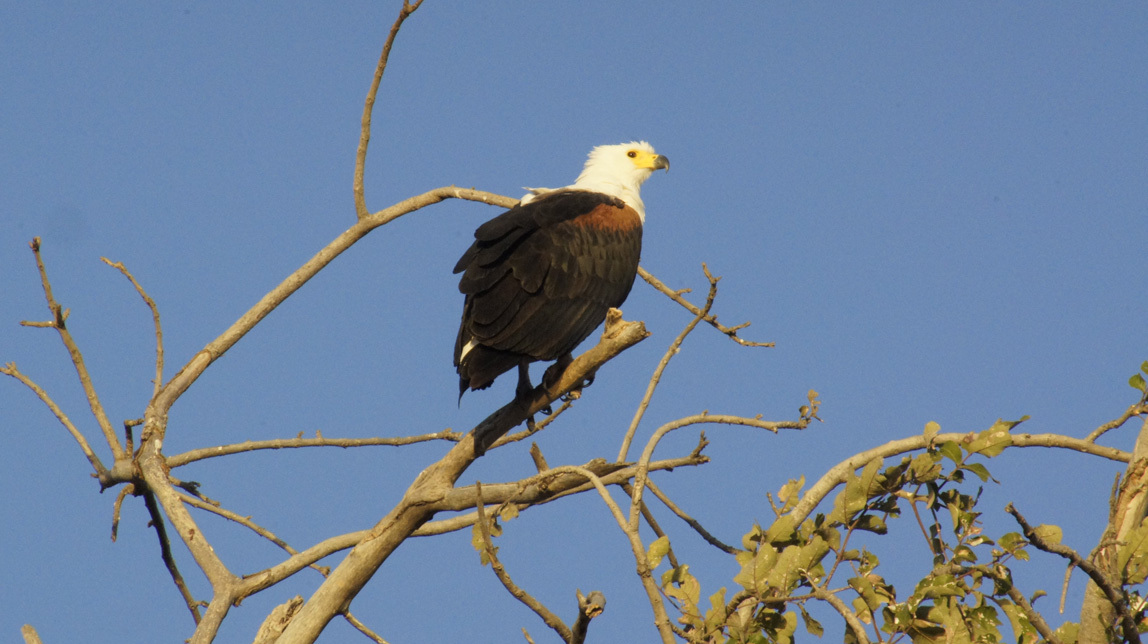
Below is a cape vulture. They are relatively rare, and not usually seen in this national park. According to Wikipedia, there are only 8000 cape vultures left.
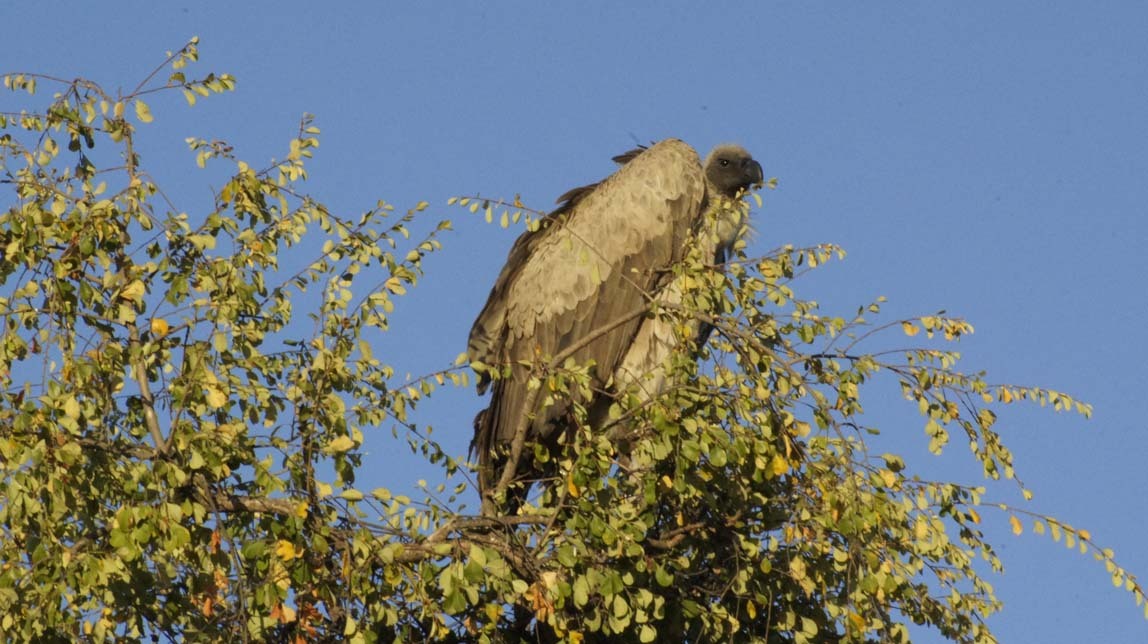
Yellow-billed storks:
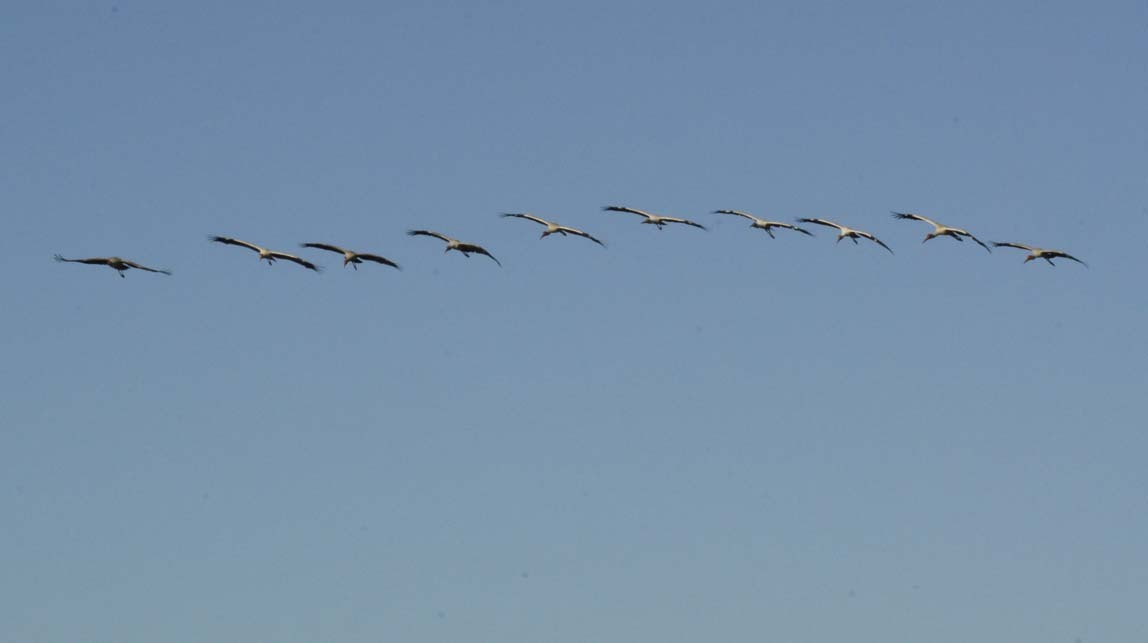
and a zoom-in:
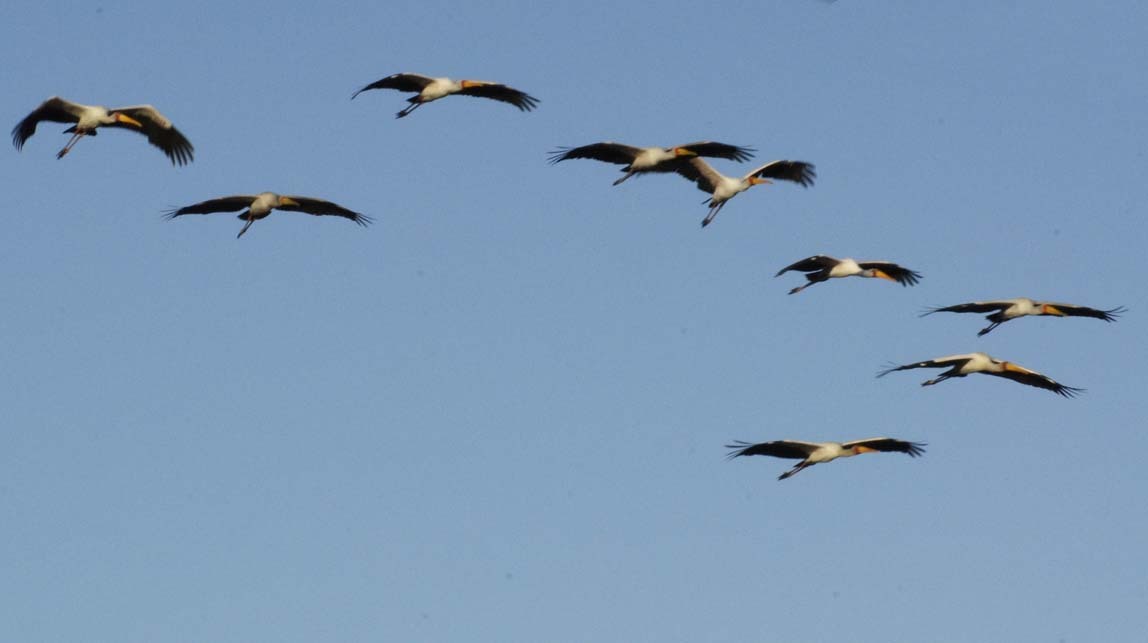
Here's a path you don't want to walk down!
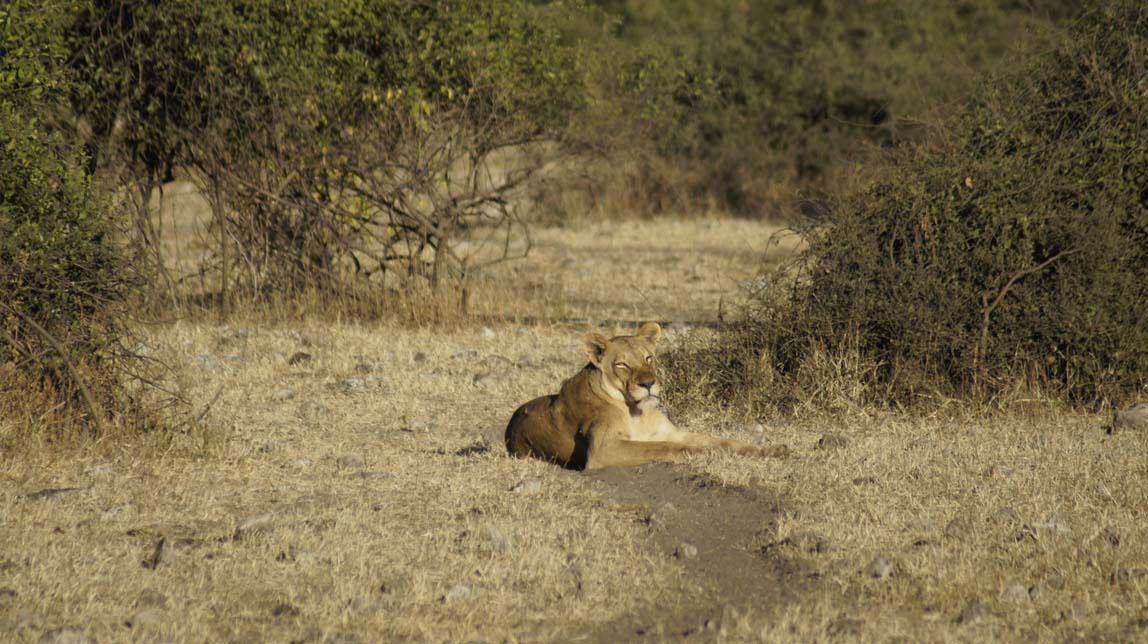
Guess we are boring, the lioness closes her eyes:
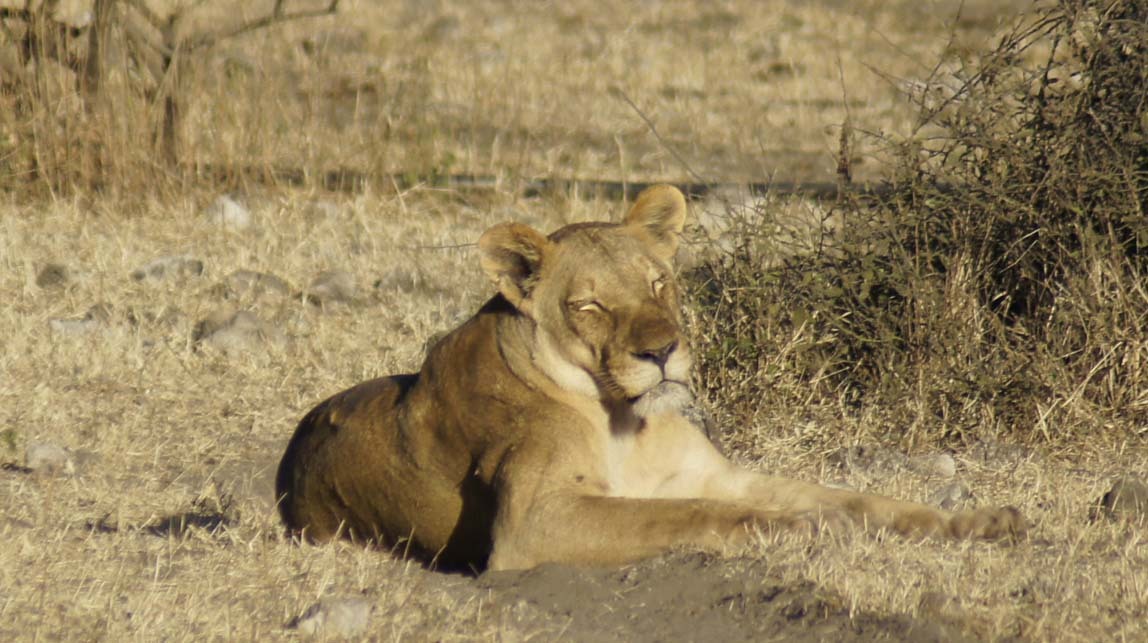
We saw three other lions a little further away (one had already walked off before I shot the photo below). These are not like the lions that we walked with a couple days ago - these lions are wild and dangerous. I shot the photos at full 300mm zoom (meaning, the lions are a ways away). If a person were to get out of the jeep and approach them, they might just be lion-breakfast.
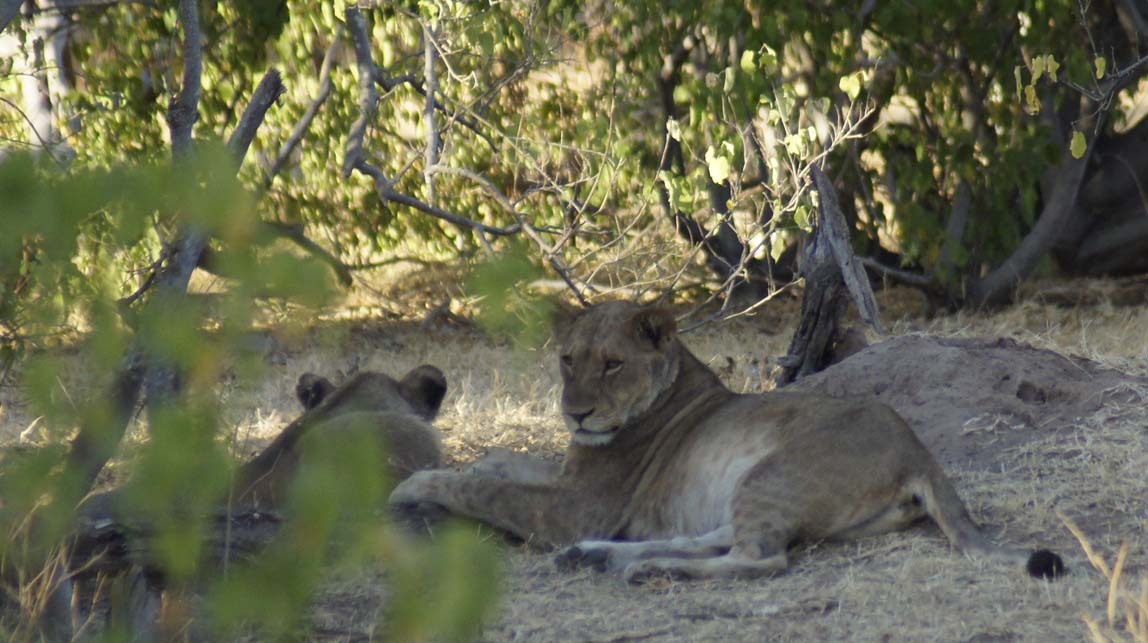
A little ways from the lions, we stopped for thermos-coffee and restrooms. We got out of the jeep and walked around. It was a little scary, knowing there really were wild lions nearby!
The photo below is of a sign at the rest stop. I certainly wouldn't harass any animals or walk very far from the safety of the jeep.
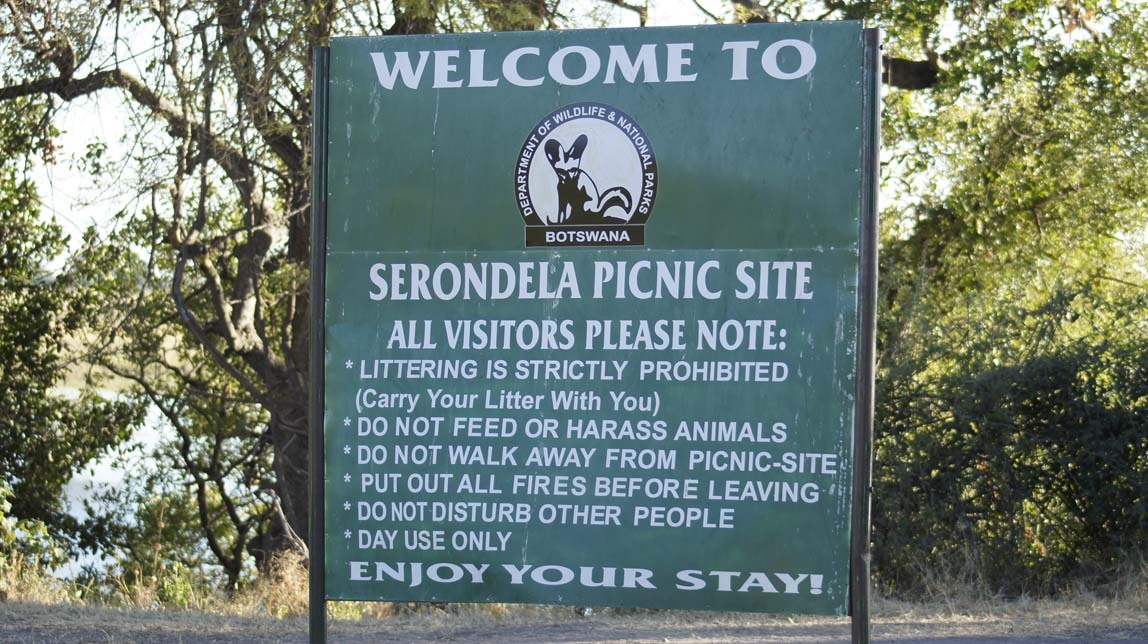
An example of my continuing effort in trying to get a good photo of baboons:
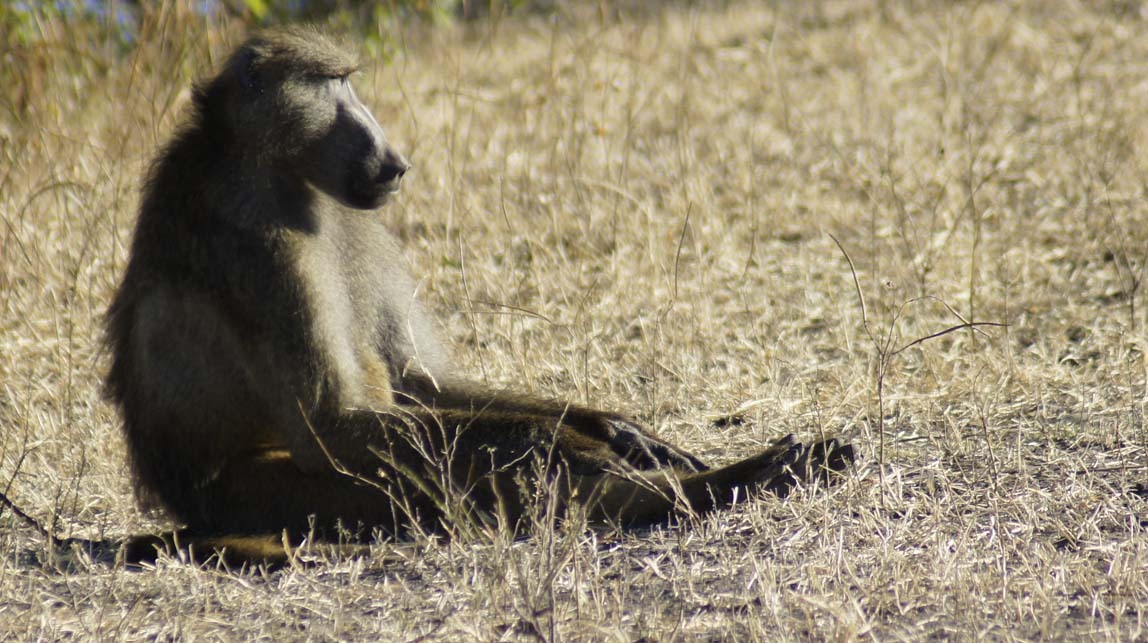
A lilac-breasted roller:
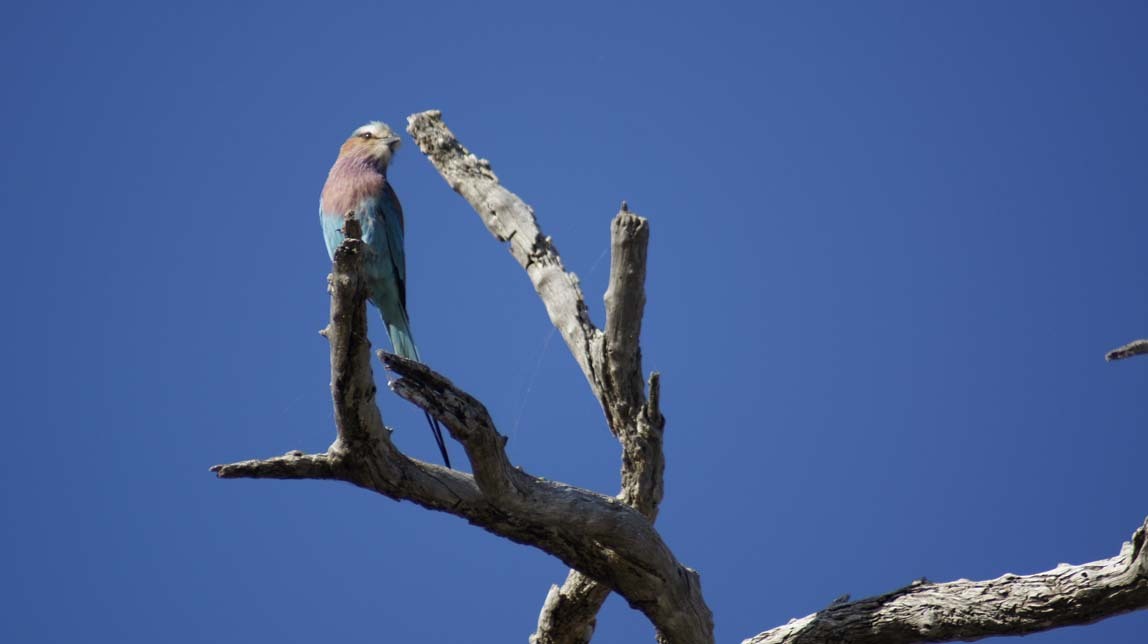
A brown-hooded kingfisher:
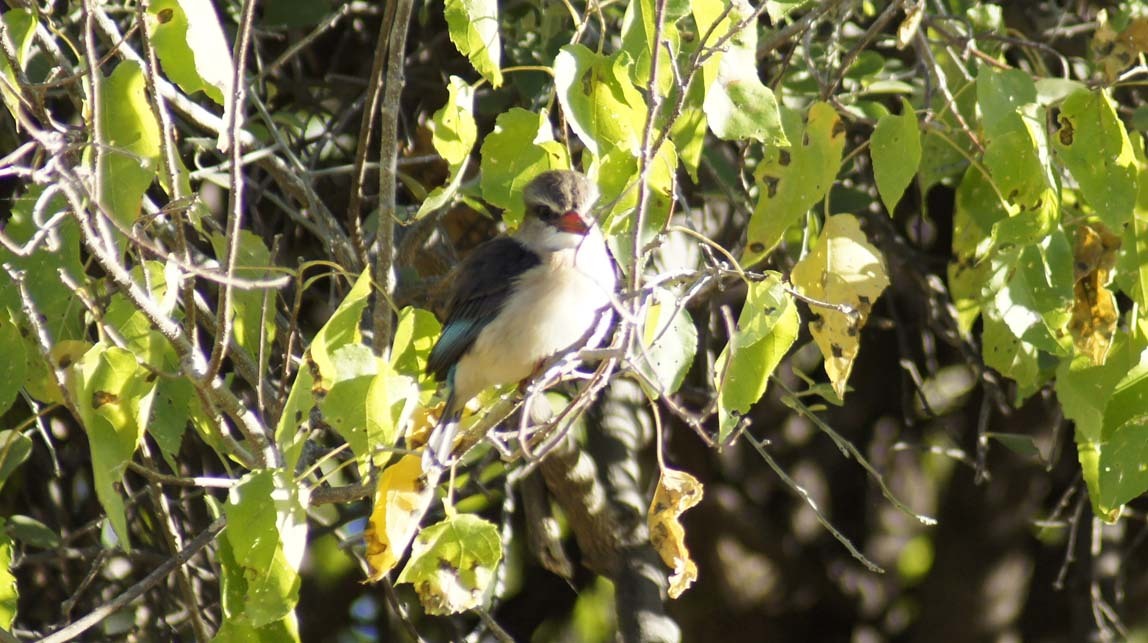
We were lucky to spot a puku, a type of antelope. They are an endangered species and rare in Botswana. I was able to catch a few photos of a handsome young male. In the second photo, note his small horns. This photo on Wikipedia shows the an older male with larger horns.
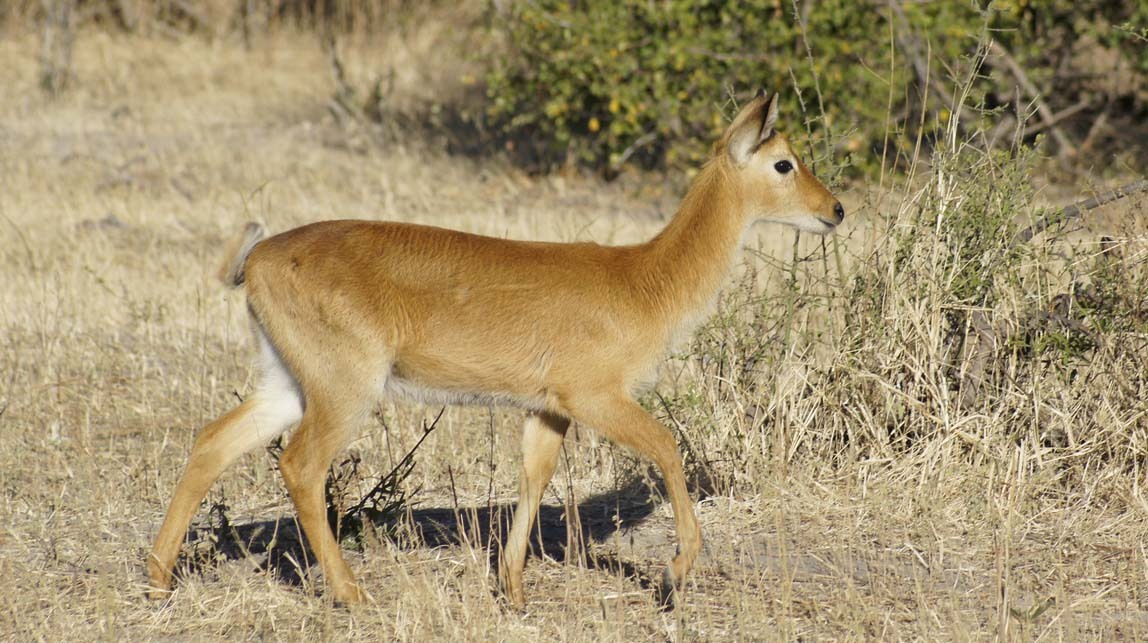
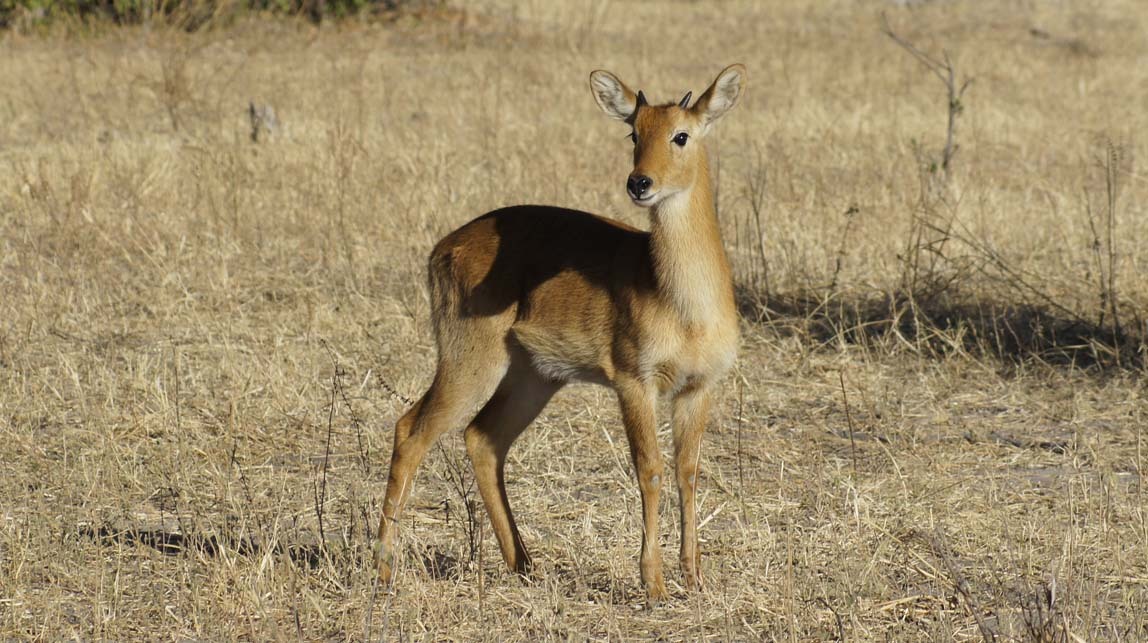
A cape buffalo carcass:
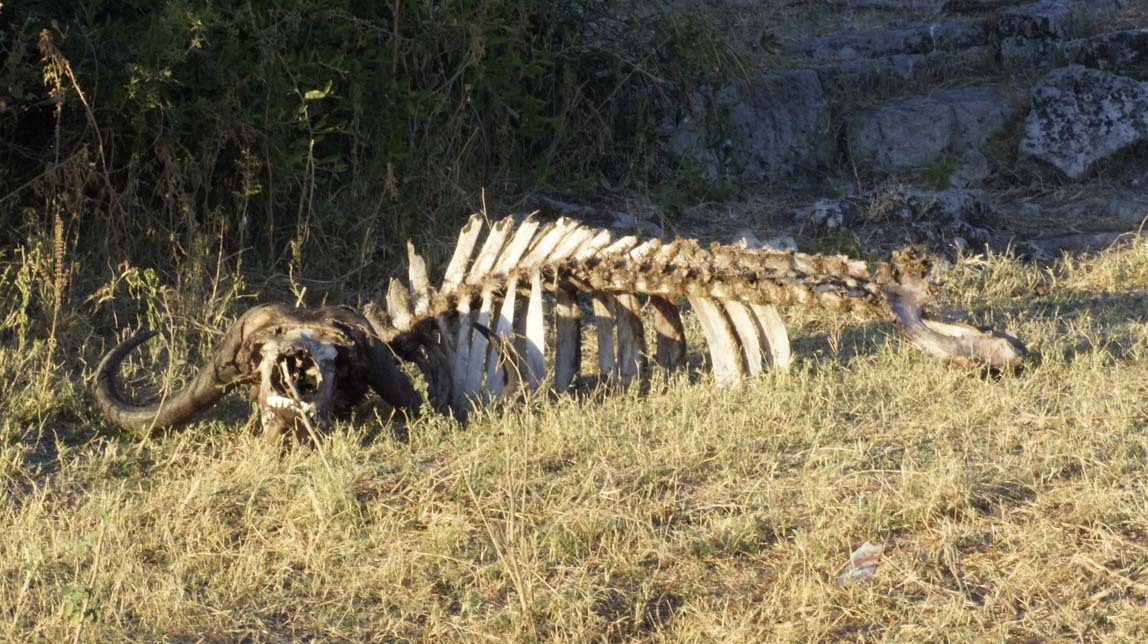
When an animal is killed (or just dies), scavengers descend on the carcass: nothing is wasted on the savannah. We came on the scene below: vultures and marabou storks working on something dead. That's a lappet-faced vulture on the right, with the red, featherless head. The brown ones are called white-backed vultures. The big grey bird is a marabou stork.
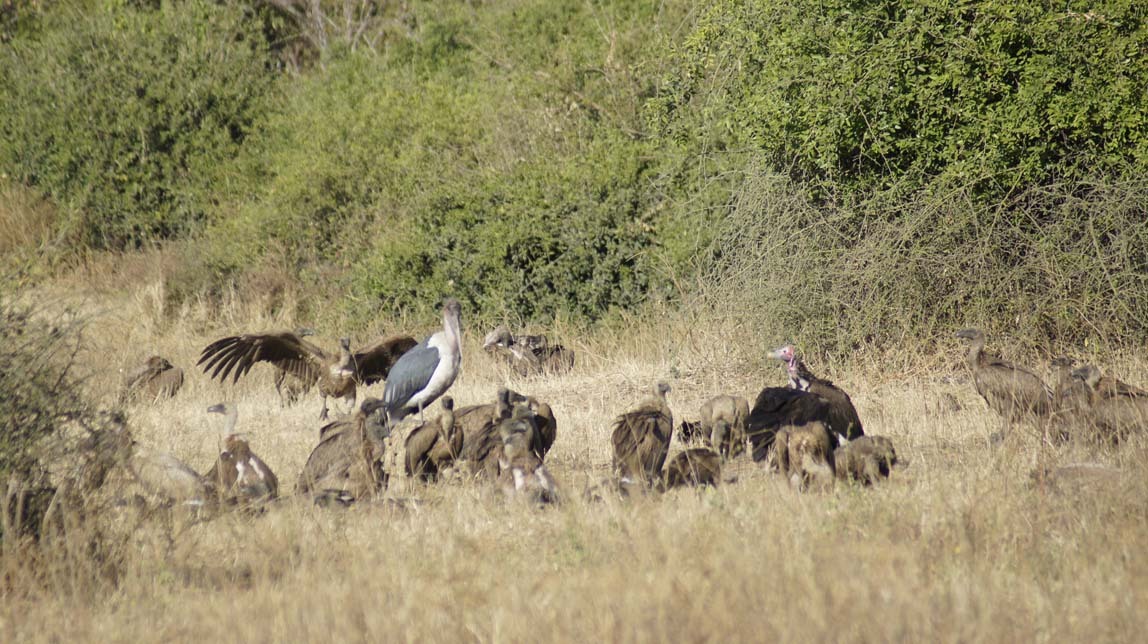
I caught one photo as the marabou stork was just about to land.
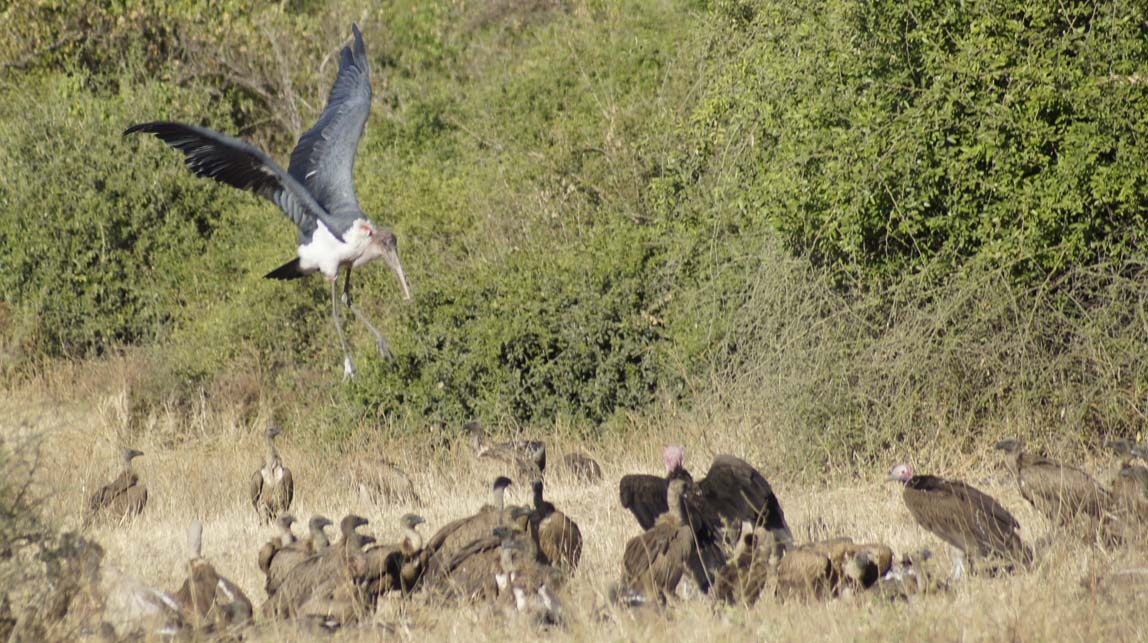
I loved watching baby baboons with their moms. These scenes are notoriously difficult to catch on camera, since the baboons always seemed to be against background-color the same as their coats. I'm pretty happy, though, with the photo below.
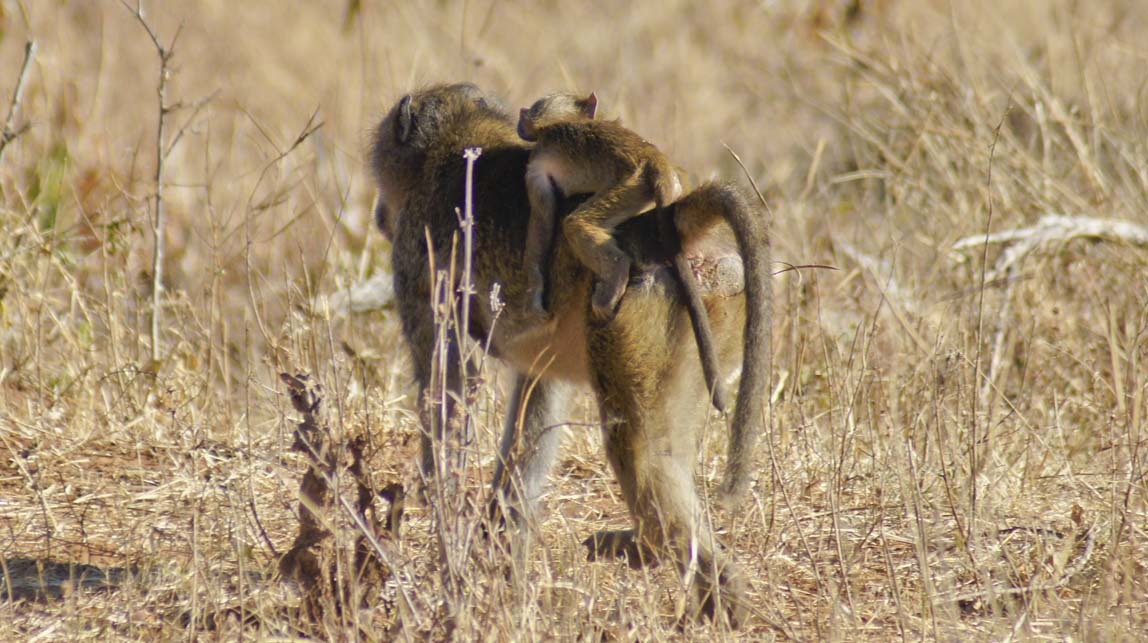
Finally, I got a photo of a baboon against a good background. This big male baboon found a chair:
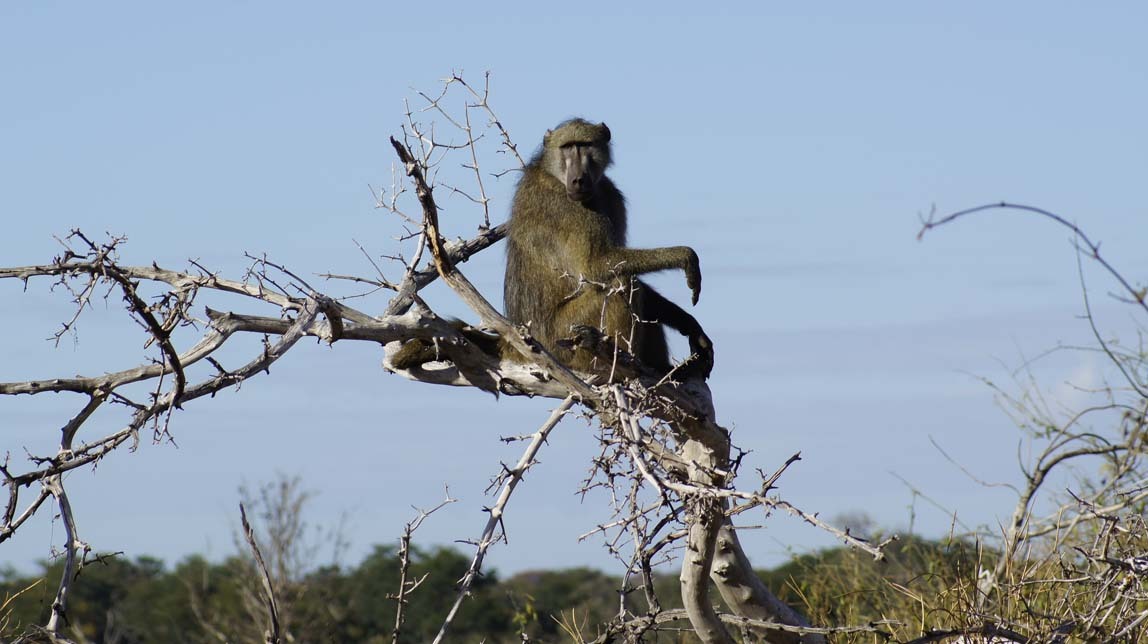
We saw some hippos in the distance. I'll have better hippo photos to show in later blog entries, but these two are sort of interesting. In the first, I zoomed in and caught a line of hippos climbing out of the water.
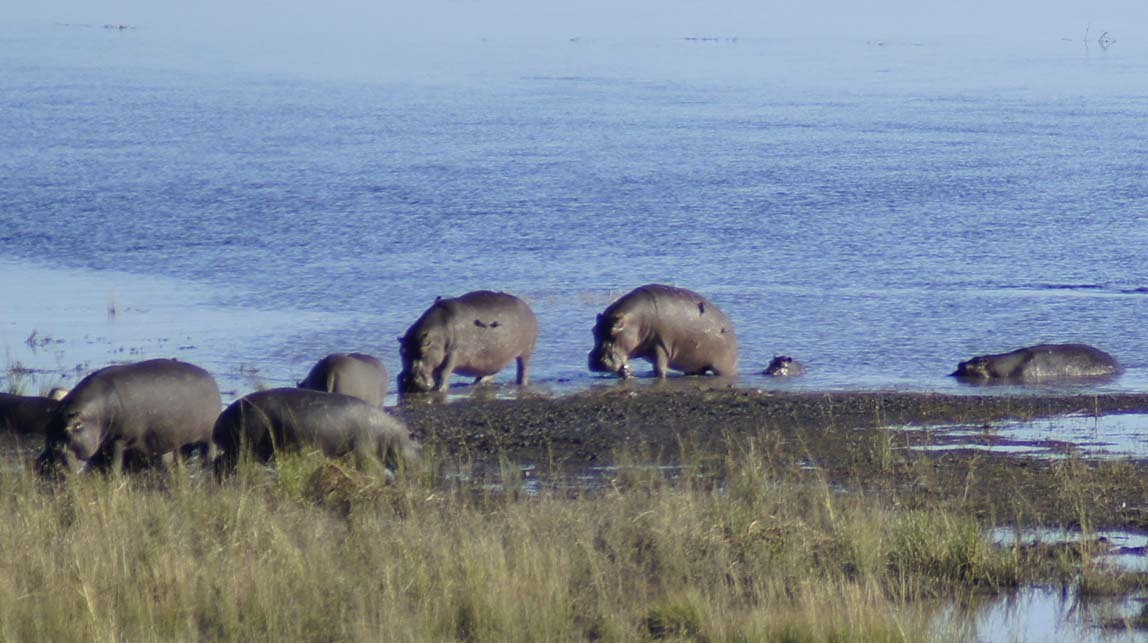
Then I zoomed out to show a panorama of our view.
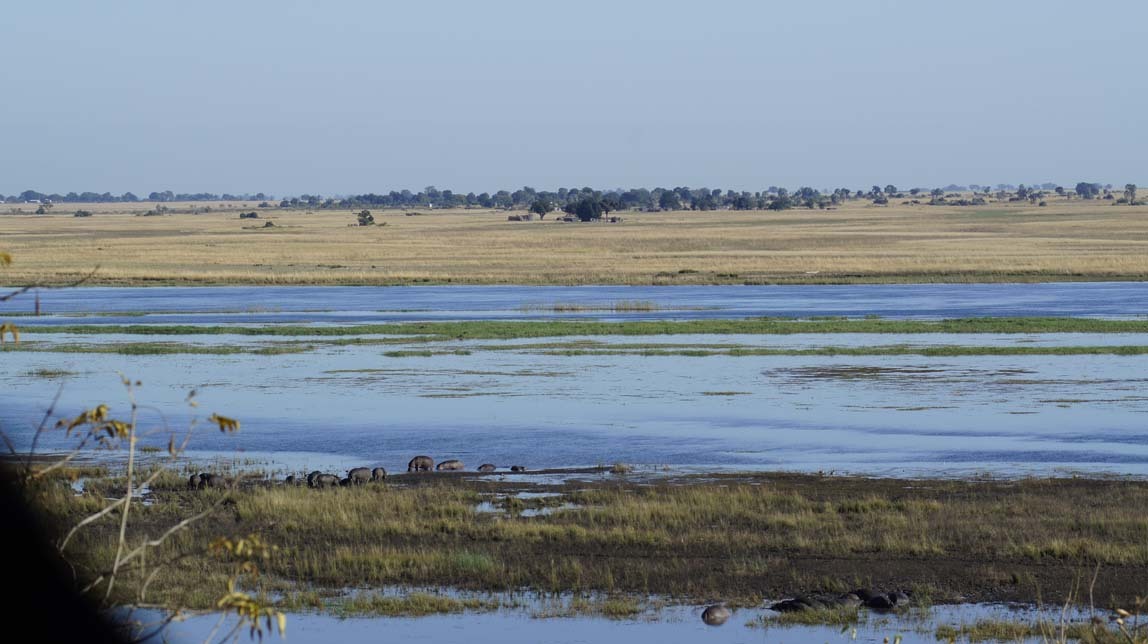
And our morning drive comes to an end. It's only 9 am! We head back to our safari lodge and enjoy a proper breakfast. We then enjoy the pool next to the bar and rest up for the next adventure.
Navigation: first safari blog entry
Next blog entry
Dressing warmly, we gather with Tonia at the main lodge, where coffee and breakfast breads and juices are temptingly laid out on tables. Even though we are all still trying to shake off lingering sleepiness, we are excited to go back to the animal park, and we are still talking about seeing the lion pride last night. Draining the last of our coffee from our cups, we go out to the safari jeep and climb back in.
We enter Chobe National Park and head towards the river. Early morning view:

A fish eagle:

Below is a cape vulture. They are relatively rare, and not usually seen in this national park. According to Wikipedia, there are only 8000 cape vultures left.

Yellow-billed storks:

and a zoom-in:

Here's a path you don't want to walk down!

Guess we are boring, the lioness closes her eyes:

We saw three other lions a little further away (one had already walked off before I shot the photo below). These are not like the lions that we walked with a couple days ago - these lions are wild and dangerous. I shot the photos at full 300mm zoom (meaning, the lions are a ways away). If a person were to get out of the jeep and approach them, they might just be lion-breakfast.

A little ways from the lions, we stopped for thermos-coffee and restrooms. We got out of the jeep and walked around. It was a little scary, knowing there really were wild lions nearby!
The photo below is of a sign at the rest stop. I certainly wouldn't harass any animals or walk very far from the safety of the jeep.

An example of my continuing effort in trying to get a good photo of baboons:

A lilac-breasted roller:

A brown-hooded kingfisher:

We were lucky to spot a puku, a type of antelope. They are an endangered species and rare in Botswana. I was able to catch a few photos of a handsome young male. In the second photo, note his small horns. This photo on Wikipedia shows the an older male with larger horns.


A cape buffalo carcass:

When an animal is killed (or just dies), scavengers descend on the carcass: nothing is wasted on the savannah. We came on the scene below: vultures and marabou storks working on something dead. That's a lappet-faced vulture on the right, with the red, featherless head. The brown ones are called white-backed vultures. The big grey bird is a marabou stork.

I caught one photo as the marabou stork was just about to land.

I loved watching baby baboons with their moms. These scenes are notoriously difficult to catch on camera, since the baboons always seemed to be against background-color the same as their coats. I'm pretty happy, though, with the photo below.

Finally, I got a photo of a baboon against a good background. This big male baboon found a chair:

We saw some hippos in the distance. I'll have better hippo photos to show in later blog entries, but these two are sort of interesting. In the first, I zoomed in and caught a line of hippos climbing out of the water.

Then I zoomed out to show a panorama of our view.

And our morning drive comes to an end. It's only 9 am! We head back to our safari lodge and enjoy a proper breakfast. We then enjoy the pool next to the bar and rest up for the next adventure.
Navigation: first safari blog entry
Next blog entry
Comments
No comments yet
Add Comment